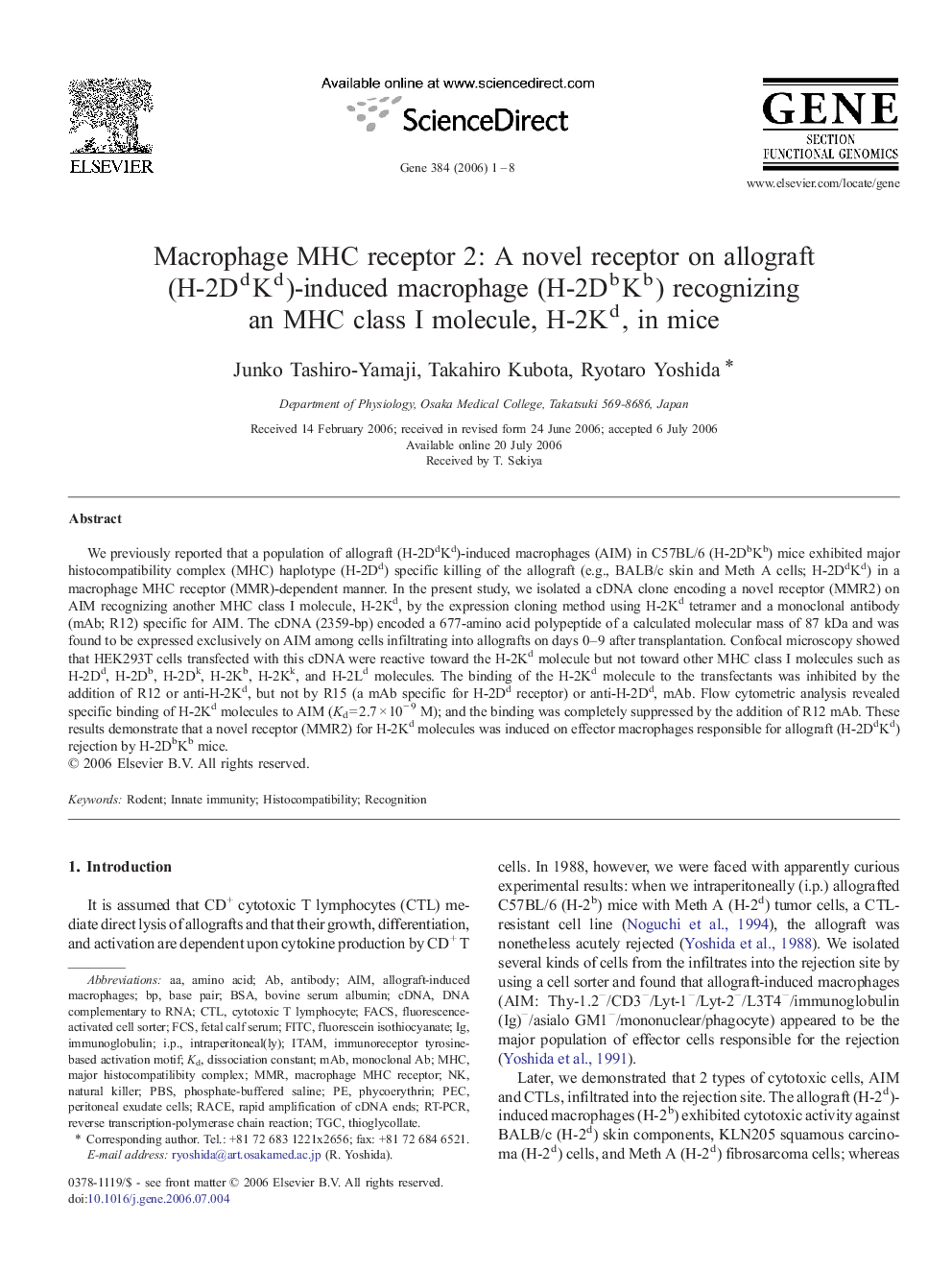| Article ID | Journal | Published Year | Pages | File Type |
|---|---|---|---|---|
| 2820011 | Gene | 2006 | 8 Pages |
We previously reported that a population of allograft (H-2DdKd)-induced macrophages (AIM) in C57BL/6 (H-2DbKb) mice exhibited major histocompatibility complex (MHC) haplotype (H-2Dd) specific killing of the allograft (e.g., BALB/c skin and Meth A cells; H-2DdKd) in a macrophage MHC receptor (MMR)-dependent manner. In the present study, we isolated a cDNA clone encoding a novel receptor (MMR2) on AIM recognizing another MHC class I molecule, H-2Kd, by the expression cloning method using H-2Kd tetramer and a monoclonal antibody (mAb; R12) specific for AIM. The cDNA (2359-bp) encoded a 677-amino acid polypeptide of a calculated molecular mass of 87 kDa and was found to be expressed exclusively on AIM among cells infiltrating into allografts on days 0–9 after transplantation. Confocal microscopy showed that HEK293T cells transfected with this cDNA were reactive toward the H-2Kd molecule but not toward other MHC class I molecules such as H-2Dd, H-2Db, H-2Dk, H-2Kb, H-2Kk, and H-2Ld molecules. The binding of the H-2Kd molecule to the transfectants was inhibited by the addition of R12 or anti-H-2Kd, but not by R15 (a mAb specific for H-2Dd receptor) or anti-H-2Dd, mAb. Flow cytometric analysis revealed specific binding of H-2Kd molecules to AIM (Kd = 2.7 × 10− 9 M); and the binding was completely suppressed by the addition of R12 mAb. These results demonstrate that a novel receptor (MMR2) for H-2Kd molecules was induced on effector macrophages responsible for allograft (H-2DdKd) rejection by H-2DbKb mice.
